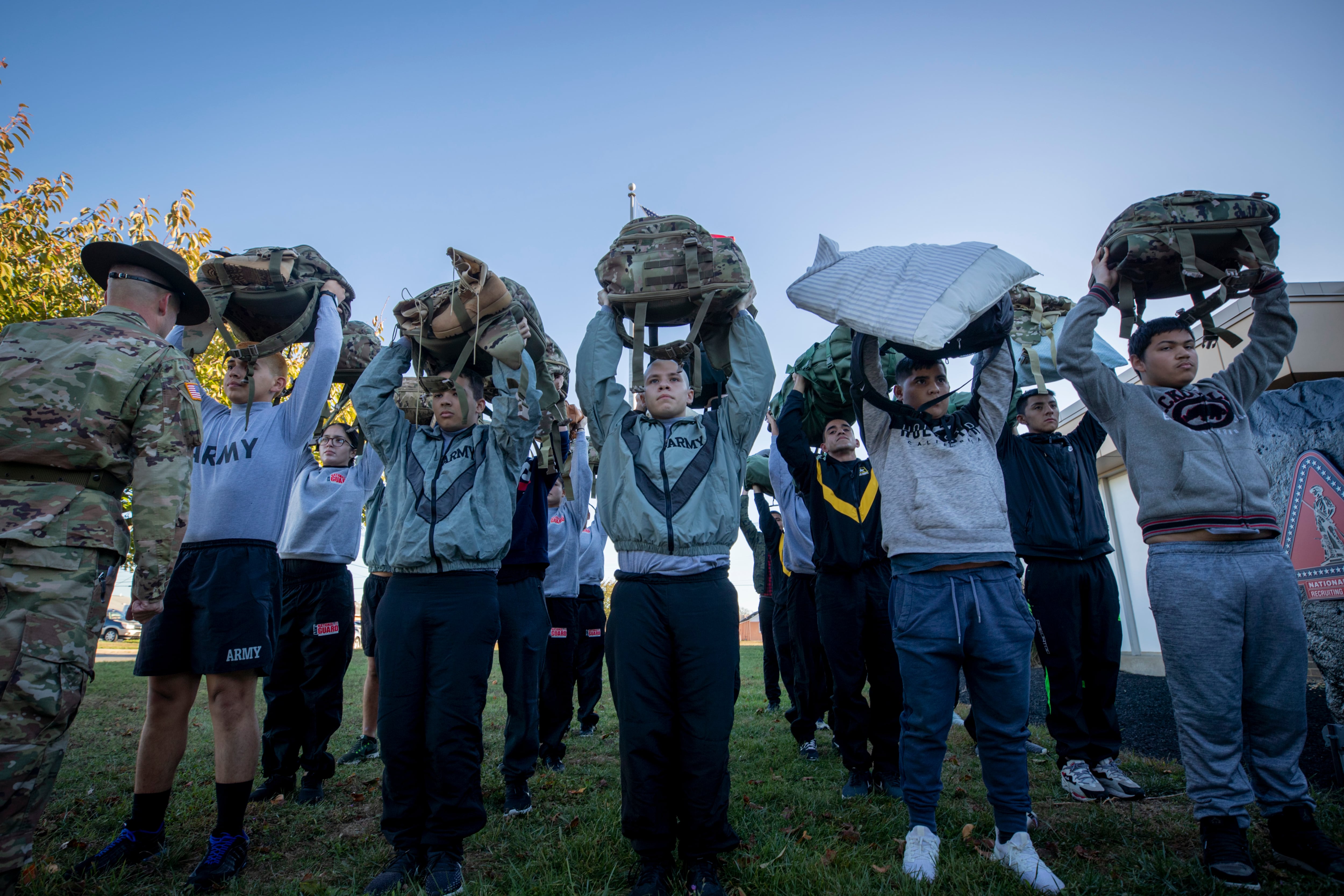FORT KNOX, Kentucky – One month after “going virtual” because of the coronavirus pandemic, Army recruiters are gearing up for increased use of Army recruiting stations in the coming weeks to get back to the job of shipping recruits to the Army training base, recruiting officials said in a virtual town hall meeting on YouTube Friday.
Maj. Gen. Frank Muth told more than 4,400 people listening online that recruiting mission contracts have lagged by 5,500 during the last month as a result of the pandemic, and that Military Entrance Processing Stations will begin shipping recruits April 27.
Muth, the commanding general of U.S. Army Recruiting Command, said that recruiting stations were closed on March 18 and the command went “100 percent virtual.”
“We’ll transition to greater utilization of stations in the first or second week of May,” he said.
Muth and other senior officials from USAREC spoke and took questions for an hour and emphasized several times that recruiters can expect a surge in enlistment contracts in June through September to make up for the shortfall caused by the outbreak.
“We’ll also be looking at each area in the United States to analyze and reduce risk in the 500 stations in counties that we consider ‘amber,’” Muth said. “Different parts of the country may get re-missioned” based on local conditions brought on by the pandemic, he said.
RELATED

There are more than 10,000 recruiters working at more than 1,400 recruiting stations across America and overseas. The Army announced last year that it needs 68,000 new men and women in fiscal year 2020 to meet its 485,000-soldier end-strength. In mid-March, the Army was about 2,200 contracts ahead of where it was last year, according to Lisa Ferguson, a spokeswoman at USAREC headquarters.
Since March 16, however, USAREC has shipped 1,700 Regular Army and Reserve soldiers to basic training, and the Army paused movement of new recruits on April 6, Ferguson said.
One of the measures that USAREC will use to mitigate risk of infection from COVID-19 is to direct recruiters to have prospects certify that they have self-quarantined for 14 days before they ship.
Command Sgt. Maj. Tabitha Gavia encouraged recruiters to “stay in the fight” and that geographical bachelors “stay in touch with your families” during this period.
Gavia also praised the Medical Recruiting Brigade which has processed applicants responding to a retiree recall request to former medical personnel from U.S. Army Human Resource Command. More than 14,000 retired medical soldiers contacted HRC in response to the request for assistance to fight the pandemic in late March.
Brig. Gen. Patrick Michaelis, the deputy commanding general, spoke to mission, policy, fusion and marketing issues. “Guidance for recruiter expense reports will be adjusted to allow for boosting of social media posts. We’ll also be introducing nine new videos soon,” he said.
“I challenge you to think of the digital space and how we establish superiority,” Michaelis said. “Think of this as the new now.”
Michaelis also assured recruiters that there would be no “forfeiture of enlistment bonuses for soldiers delayed because of COVID-19.”
Muth emphasized that we are “all going through a national emergency now. This is bigger than all of us.
“We have always tried to use common sense and to take care of you,” he said.
“Every one of you should be working as hard as you can,” Muth said, and he stressed the importance of a positive, upbeat attitude. “We won’t go back to the old normal.”




